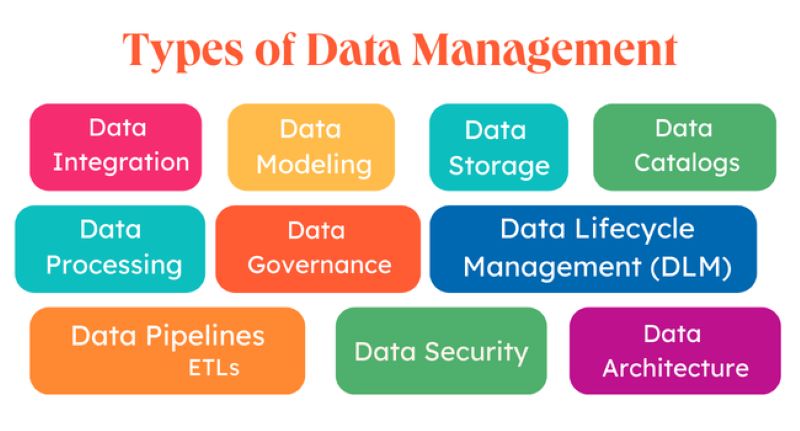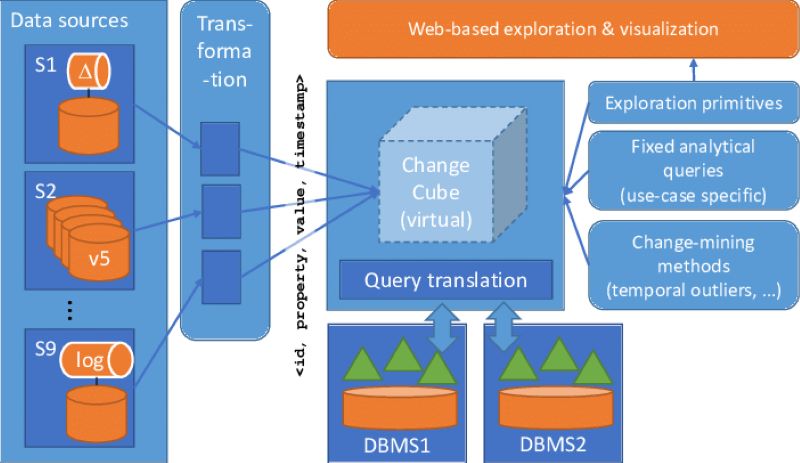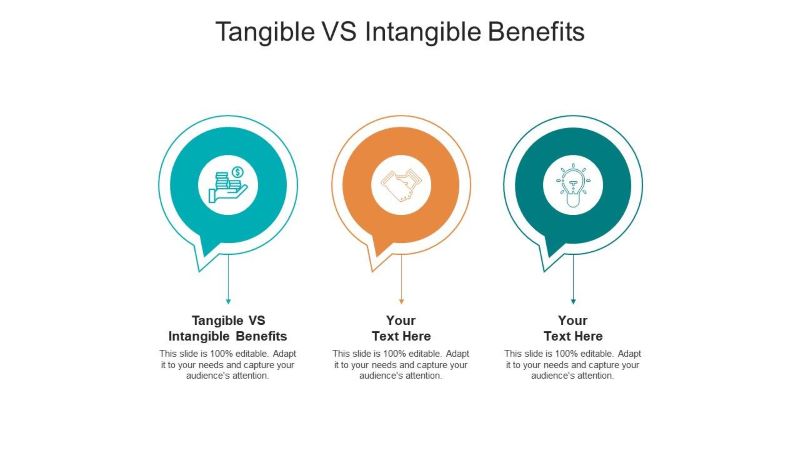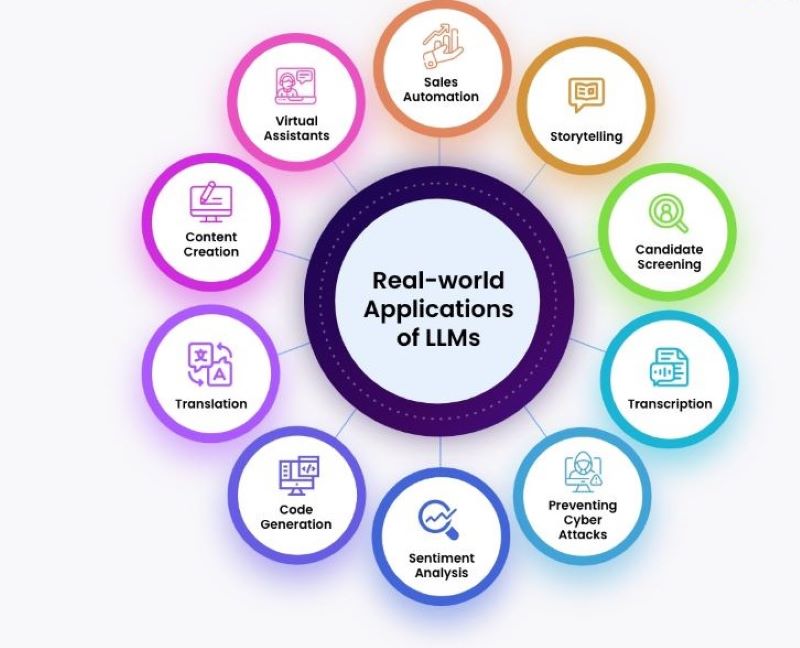Have you ever wished your data could stand the test of time, untainted and unchanged? Say hello to immutable data records – a powerhouse in the data management world. In this deep dive, I’ll guide you through how locking down your data from edits or deletion supports not just security, but also supreme trust in your records. It’s a brave new world where benefits of immutable data records become your data’s shield and defender. Let’s dig into the nitty-gritty of what makes immutable data the golden standard for info-safekeeping!
Understanding the Core of Immutable Data Records
Defining Immutability in Data Management
When we talk about immutability in data management, we mean forever storing records just as they were first written. No one can change or delete these records. This makes sure the data stays pure and true over time. Imagine writing in permanent marker on a whiteboard, but even stronger. That’s how tough it is to change any data.
The power of immutability lies in its ability to keep data authentic. You can always trust the information you see. This is key for businesses that need to keep accurate records. Like a doctor tracking a patient’s health history, or a bank recording transactions. With data immutability, the records are as reliable as they get. We call this ‘data integrity’. Data integrity is a huge deal. It’s the backbone for trust and security in data because it ensures that the record you see is the real deal.
The Role of Blockchain in Permanent Record Keeping
Now, let’s talk about blockchain. Blockchain is a tech star for creating permanent, unchangeable records. Here’s why: it uses blocks to store data, and these blocks are strung together like beads on a string. If you try to mess with one block, you’d have to outsmart the entire chain. That’s because each block holds a special code that links to the one before it. This code is a cryptographic hash function, and it’s super powerful – no one can crack it. That’s what makes blockchain so unique. It locks in every bit of data like a vault.
People love blockchain for keeping their data under a virtual lock and key. It does way more than just hold cryptocurrency. For example, it manages contracts for buying homes without a hitch and ensures the meds you take are the real thing. This is because of the security that blockchain technology brings to the table.
A big win of using blockchain is that it builds trust. Let’s say you buy stuff from a company. How do you know they’re being honest about their products? With blockchain, they can show you an immutable ledger. This ledger is a record that can’t be tricked with or wiped away. It’s like having a personal detective confirming that yes, what you bought is exactly what the company promised.
Blockchain also kicks up security up a notch. It makes it super tough for bad actors to meddle with data. Plus, it makes data storage secure without needing piles of paper. This soup-up in security and trust makes it clear that immutable data records are here to stay. They keep information clean and clear for as long as we need it. Whether it’s proving your home is really yours, or tracking that the strawberries you buy are organic, blockchain’s permavery and security are what make it shine.
The Technical Mechanisms Ensuring Data Immunity
Cryptographic Hash Functions Explained
Let’s talk about keeping data safe. Think of a lock that only fits one key. Cryptographic hash functions are like that lock, but for data. They turn data into a unique code. This code changes if someone messes with the data. It’s like a fingerprint for information. It shows us if data is the same as when we first stored it.
When data goes into the blockchain, a hash function locks it down. Each block has a unique hash, and a link to the last block’s hash too. This chain of hashes is what makes the data so safe. Change one bit, and the hash code won’t match. It’s easy to see when someone tries to alter data. And that person can’t change the data without us knowing.
The Architecture of Unchangeable Data Systems
Now, let’s dive into how safe systems for data are built. These systems are designed to keep records unchanged. First, data gets into the blockchain. It’s locked in with a hash. Then, the system groups data into blocks. Each block connects to the next with its unique hash. This is what we call an immutable ledger.
The order is vital too. Once a block joins the chain, it’s set in stone. Nobody can change it without changing the whole chain. To change anything, you would need to redo all the work for every block. And with many computers watching, someone would notice the change.
Think of it like a tower of blocks. Every level checks the one below. If a block shifts on the bottom, the whole tower falls. It’s the same with blockchain. If one block’s data changes, everything after it breaks. This makes sure that once the data is in, it stays the same.
The secure data storage that blockchain gives has many uses. It can keep personal records, medical files, or even voting data safe. It’s all about trust in recordkeeping. We know that what goes in stays true.
Also, because each block is time-stamped, we can follow the data’s journey. An audit trail should be on point. It tells the truth about who did what and when. Blocks in a blockchain are like history that we can’t erase. They help with making sure companies follow rules, too. So, rules stay followed, and we can trust the records.
In simple words, trust in data means knowing it’s the real deal. It’s not changed by anyone. We can trust it for homes, at work, or when making big life choices. By locking down the data like this, we all win. We save money and keep our info safe. We make sure the past isn’t changed. And that’s something worth knowing.
In the end, it all comes down to something simple but powerful. When we need to be sure about our data, an unchangeable system has our back. It gives us a clear picture of the truth. That’s the heart of data integrity. And that, my friends, is truly priceless.
The Tangible Benefits of Unalterable Data
Boosting Data Security and Reducing Tampering Risks
Imagine a world where making mistakes on important documents can’t happen. Sounds great, right? That’s what unchangeable data offers. No one can mess with the records once they’re set. This peace of mind is a big win for everyone. This rock-solid security is because of immutable ledgers. These ledgers make sure data stays as it was first written. No changes, no slip-ups, no tampering.
Strengthening Audit Trail Accuracy and Regulatory Compliance
Now, when people hear “audit,” they might cringe a bit. But here’s the good part. With data that doesn’t change, audits become a breeze. You can trust every bit of info is the real deal—total authenticity. This makes following rules and laws simpler for everyone. Plus, it’s not just simple, it’s spot on. Permanent data entry means every single step is traceable. Every change gets its moment in the spotlight, clear as day.
In this world, “Oops, my bad” in recordkeeping turns into “Got it, that’s perfect.” Firms can show they play by the rules with ease. They can point to their records and say, “Look, we’re all good.” And guess what? They really are. It’s like having a memory that never forgets a thing for your company.
Immutable ledger advantages also help everyone be on the same page. It’s not just about keeping things safe; it’s about trust. It’s about knowing the page you’re reading has the same words as yesterday, last week, last year. Trust in recordkeeping isn’t just nicer to have; it’s a must-have.
Imagine knowing a file, a dossier, a record is just as it should be—always. That feeling? That’s what you get with tamper-proof records. No tricks, no monkey business, just pure, unaltered truth. Everyone can know that when they check a record, it’s as true as when it was first made.
Blockchain technology plays a bit of hero here. It backs up the data integrity promise with a techie shield. It’s like a superhero for your info, guarding it night and day. Secure data storage is part of the package. It’s all tucked away nice and safe.
So, what’s the real-deal benefit of non-modifiable records? It’s like a snapshot that never fades. It’s a promise that what you see is what it is, no fibs or fairy tales. Firms gain big trust points when their info is bulletproof. And when firms can show that their words are good as gold, that’s the gold medal right there.
The point of all this? It’s not just about keeping bad guys away from your data. It’s about making sure everyone can trust the system. Imagine every person, every place, every piece of paper singing the same tune. That’s the beauty of non-erasable databases. It’s a chorus of correctness, and everyone’s invited to the sing-along.
Now, think of historical data accuracy. Things from way back when stay just as they were. They don’t get twisted over time. Each bit of data tells its true story, just as it happened. It’s like having a time machine that only tells the truth.
Altogether, these stories paint a picture. It’s a picture where data doesn’t play hide and seek. It stays put, standing tall and telling it like it is. And when data tells the truth, the whole truth, and nothing but the truth? Well, that’s where the magic happens. That’s where businesses, big and small, governments, and fans of facts get to win. The heroes are the immutable storage systems, the champions of keeping things just so.
So, next time you hold a piece of information, think about its journey. Has it stayed true? With immutable records, that’s not just likely; it’s a given.
Real-World Applications and Impacts
Case Studies: Immutable Records in Action
Let’s get hands-on with examples showing how rock-solid data can change the game. Health care shines here. When hospitals use unchangeable data systems, patient records are safe. No one can change these records. So, doctors trust what they see. This trust can mean better care and lives saved.
Groups like the FDA need clear drug trial records. With eternal records, they rest easy knowing no one has messed with the details. This helps them make faster decisions. Financial pros find peace of mind with blockchain records too. Every penny is tracked. No question about where it went or came from. That’s gold for trust in their work.
Future Trends in Immutable Data Storage and Management
What’s on the horizon for unbreakable data? It’s getting big in many spots. Voting systems crave this kind of security. Imagine a world where every vote counts for real—no doubts. Solid records make sure of that. Schools could use it too. Grades and degrees lasting forever – no fakes, no changes.
Energy sectors could track every watt and joule. Then they can serve us better and cleaner. Smart, green choices come from data that doesn’t lie. Law enforcers could have records that stand strong in court. Proof that doesn’t twist in the wind. That’s a future with less crime.
Robots and AIs are joining the party too. They’ll be the muscle that checks data round the clock. Soon, every piece of info might come with a promise: It’s real, and it’s forever. That means a world where we trust the digital ground we walk on.
Change can be scary, but this change is full of hope. It’s the foundation for a world built on trust. We might not see it all happen tomorrow, but the seeds are sown. The future looks good with data that stays true, no matter what.
In this post, we’ve tackled the power of immutable data. We first dug into what immutability means and how blockchain nails down rock-solid records. Then we cracked open the tech that keeps data safe from change, like crypto hash functions and solid system design. We also saw big wins like better security and spot-on audits, plus stories of real-life uses. Looking ahead, data that stays put will shake up how we save and protect our digital info. Keep your eyes peeled, as this tech will redefine data trust for good.
Q&A :
What are the primary advantages of using immutable data records?
Immutable data records offer several significant advantages. Firstly, they provide a robust level of data integrity since once data is written, it cannot be altered, thus eliminating the possibility of unintentional changes or data corruption. Secondly, immutability ensures a more straightforward audit trail, making it easier to track changes and uphold compliance with regulations. Lastly, with immutable records, the consistency of data across distributed systems is enhanced, since each copy of the data remains unchanged.
How do immutable data records enhance security?
The security enhancements with immutable data records stem from their inherent characteristic that data, once stored, cannot be tampered with. This makes it extremely difficult for unauthorized users to alter data. Immutable records are particularly effective against ransomware attacks, as even if a system is compromised, the original data remains untouched and can be recovered.
Can immutable data records improve system performance?
Yes, immutable data records can lead to improved system performance. Since data does not require locks or complicated conflict resolution, which is common in mutable databases, systems with immutable records can achieve higher levels of concurrency and throughput. Moreover, developers can optimize systems for read performance because the data structure does not change.
Why are immutable data records essential for regulatory compliance?
Regulatory compliance often demands that certain data be retained in an unaltered state for a specific period. Immutable data records are essential in such contexts because they ensure that once data is stored, it remains unchanged and fully traceable. This unalterable nature enables companies to meet legal requirements for data retention, auditability, and data integrity with greater ease.
What impact do immutable data records have on data management practices?
Immutable data records encourage the adoption of more disciplined data management practices. Since all changes to data are recorded as new entries rather than alterations, organizations are compelled to think carefully about the data they generate and maintain. This can lead to more thoughtful and purposeful data storage and usage strategies, fostering a culture of accountability and meticulous data handling.





RELATED POSTS
Can you mine Dogecoin? – Exploring the Mechanics behind it
Can you mine Dogecoin? This...
Keith Grossman: The journey from media to finTech
Discover the life and career...
Acki Nacki Airdrop: A detailed guide on how to participate
In the rapidly evolving world...
Is Ledger open source? 95% of Ledger’s software is open source
Wondering “Is Ledger open source?”...
Distributed Ledger Technology vs Blockchain – A Comparative Analysis
Have you ever wondered about...
Immutable Data Records: Unlocking the Secrets to Secure, Trustworthy Information Management
Discover the benefits of immutable...
Tomarket Airdrop – Explosion of the Super Countdown Event
The Tomarket Airdrop event is...
Cow DAO base L2 chain launch: Faster, cheaper and more scalable blockchain
The Cow DAO Base L2...
The Tokenomics of U2U Network – Sustainable Value for Users and Investors
The Tokenomics of U2U Network...
How does Robinhood work? The Gateway to Blockchain
In today’s rapidly evolving financial...
On-Chain Data Analysis Instructions: Unlock Crypto Market Secrets Now
Grasp the basics of on-chain...
Top Blockchain Auditing Firms: Uncovering the Industry’s Trust Anchors
Discover the expertise of leading...
How does blockchain technology help organizations when sharing data
Wondering “How does blockchain technology...
Cryptocurrency Ro Khanna and the future of regulation
Discover how cryptocurrency ro khanna...
Privacy Considerations: Navigating the Future of Student Data Management
Discover how to ensure privacy...
Solana Sonic Game Coin: Revolutionizing Blockchain Gaming in 2024
The gaming industry is undergoing...